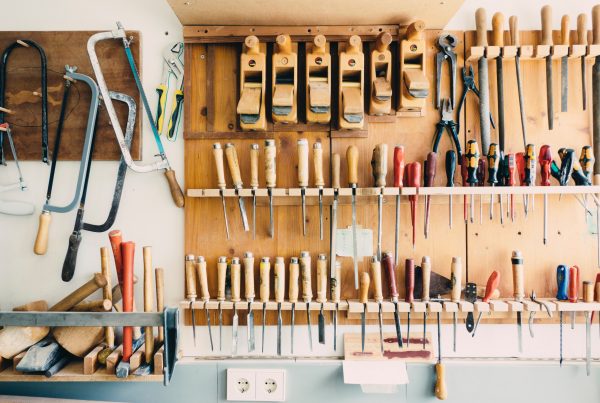The key to getting ahead is getting started, according to Mark Twain, but how do you get started when you need to know how to learn to write better?
Excellent question. I’m glad you asked. Because I’ve had friends and colleagues alike ask me how I can stare at a blank page and will the words to come. It looks like child’s play at best and witchcraft at work.
And I want to give you the tools you need to become a better writer and feel more comfortable (and confident!) in your communication skills.
But before we dive into how to learn to write better, allow me to introduce myself since this is the official first post on oliveandwit.com.
I’m Leah Jarvis, and I’m the Chief Content Officer at Olive & Wit. In other words, I started my own business and gave myself a fancy title just so I could help small business owners and creative entrepreneurs (maybe like you?!) share their work with the world. They’re the experts, after all. And I make sure their audience knows it.
Enough about me. You’re not here to make friends. You came to learn how to write better. So let’s jump in!
How to Learn to Write Better Tip #1: Read More
Before you put pen to paper or fingers to keyboard, consider the words that have made a difference in your life. Now, you’re probably thinking, “How is my favorite book going to help me sell my product?”
Well, it’s not. At least not in a tangible, “place your ad here” kind of way. What is going to do is build up a bank of new ideas, curious thoughts, and questions that will lead to more interesting conversations and dialogue around your business.
To quote our dear friend Mark again from the top of this post, “There is no such thing as a new idea. It is impossible. We simply take a lot of old ideas and put them into a sort of mental kaleidoscope.”
Where do we get these old ideas? We get them from our experiences, from our schooling, and from the books we read. While I’m writing this post about how to learn to write better, there are five books in front of me. Two I’ve read completely. One I’ve skimmed. And two are waiting for me to crack them open.
Can I point to any of the books in my office and say, “This one told me how to write!”? No. But I know I’ve picked up ideas along the way. Ideas about sentence structure, about clarity and kindness, and about confidence. Most importantly, I’ve learned that when I’m in pursuit of finding out what I don’t know, I can make better decisions and write better words.
A few things to notice as you go through your TBR, that’s to-be-read, list:
✏️ Sentence structure // Do long-winded, flowy sentences keep your attention? Or do you prefer short and choppy phrases?
✏️ Storytelling // Do you retain information better when it’s wrapped up in a story? Or do you want to get to the point?
✏️ Jargon //How do buzzwords and jargon you have to look up make you feel as a reader? Are there ways you’re including or excluding your audience with the same kind of approach?
How to Learn to Write Better Tip #2: Practice Not Pressure
Here comes the challenging part: practice, practice, practice! Look, I’m going to shoot it to you straight here: writing bad words is not fun (unless we’re talking about peppering in fun, little four-lettered words that usually sport an asterisk or two).
Your first draft of something will not likely win you any awards or prizes or skyrocketing sales. That’s why it’s called an ugly first draft.
And without it, you can’t begin to make something truly spectacular with your words. That’s why tip #2 in how to learn to write better is to embrace the practice, not the pressure.
I believe in a hard and fast deadline, but I also know that my best work doesn’t show up five minutes before game time in its Sunday best. That’s why I practice the art and craft of writing constantly.
Take this article for example. I’m the owner of my own business. No one gave me the assignment to write a 1,200-word article about learning to write better. There’s no deadline looming. There’s no client to please. No one is paying me to do this. I could spend my afternoon walking the dogs or making a four-course meal or any number of things I enjoy doing.
Instead, I’m showing up to write because I crave the practice. I’ve been a professional writer for 10 years now, and I still learn something new every time I show up to practice. And the key here is I’m practicing without the pressure to make something great or convert hundreds of sales.
While I have never forgotten a lesson I’ve learned when things get hairy on a tight deadline, I much prefer learning when the pressure is off–and my words are better for it, too.
How to Learn to Write Better Tip #3: Publish Consistently
So what do you do once you start reading more and practicing when there’s no pressure? You put what you’ve learned together and share it with someone. The P-word gets a bad rep for being scary, but you must begin to publish your work consistently. And with the Internet in the shape it’s in today, you can publish your work almost anywhere you’d like.
Facebook. Instagram. Your blog. A reddit thread. An email newsletter.
The options are endless. And you don’t have to publish right out of the gate on behalf of your business. The goal is to strengthen your share muscles. The muscles that help you put your work out into the world because you believe it has value and can help someone. The muscles that help you hit send even though you stress out about typos or broken links.
When you get in a habit of publishing consistently, you learn the secret of how to learn to become a better writer. You start to realize the words aren’t what matters. What matters is how they affect the person who finds them.
Words can hurt or heal. They can build up or tear down. They can be sticks, stones or snake emojis, but they are only as valuable as how they treat your reader.
Once you learn that, well, writer, you’ll be unstoppable.



